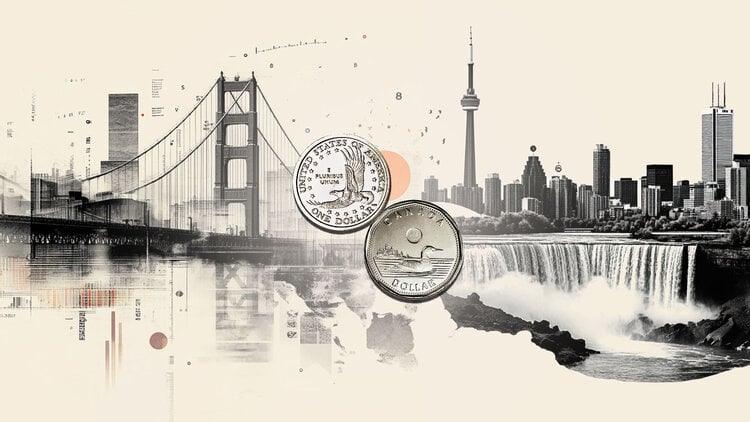Coffee consumption has been repeatedly linked to better heart health and longer life. But the benefits of drinking coffee may depend on when you drink it, according to new research.
Drinking coffee only in the morning may be best — and this appears to be independent of the amount consumed and other potentially influential factors, according to a study published on Tuesday (7) in European Heart Journal.
“This is the first study to test timing patterns of coffee consumption and health outcomes,” said lead author Dr. Lu Qi, holder of the HCA Regents Distinguished Chair and professor in the Celia Scott Weatherhead School of Public Health and Tropical Medicine. Tulane University in New Orleans, in a press release. “We don’t normally give advice about timing in our dietary guidelines, but perhaps we should think about it in the future.”
Most previous research that investigated participants’ coffee consumption over time found that moderate levels of consumption may be associated with lower risks of type 2 diabetes, cardiovascular disease and premature death, according to the latest study. But scientific evidence on whether factors such as genetics, amount consumed or added sweeteners affect these relationships has been inconsistent or sometimes controversial, the authors said.
The authors studied the dietary and health data of 40,725 adults aged 18 and over from United States National Health and Nutrition Examination Survey carried out from 1999 to 2018. During 10 cycles over the years, participants provided details of their dietary intake from the previous day. The authors also included a subset of 1,463 adults from the female and male versions of the Lifestyle Validation Study who had completed at least one weekly dietary record.
Both caffeinated and decaffeinated coffee were included, and timing was categorized into three periods: morning (4am to 11:59am), afternoon (12pm to 4:59pm) and evening (5pm to 3:59am). The researchers identified two consumption time patterns: morning and all day. At the end of the average follow-up period of almost 10 years, there were 4,295 deaths from all causes, 1,268 from cardiovascular diseases and 934 from cancer.
Compared to people who didn’t drink coffee, drinking coffee only in the morning was associated with a 16% lower risk of premature death from any cause and a 31% lower risk of dying from cardiovascular disease. Those who tended to drink coffee all day had no reduction in risk. These findings remained even after the authors accounted for confounding factors such as hours of sleep, age, race, ethnicity, gender, household income, education, physical activity levels, dietary scores, and health conditions such as diabetes, hypertension, and high cholesterol.
For those who drink coffee in the morning, the amount — with or without caffeine — consumed also didn’t matter — whether it was less than one or more than three cups of coffee per day. Having done this in the morning was still better than other patterns in terms of mortality risk.
“The study was observational, meaning it was not an experimental setting, (which) is the gold standard,” said Vanessa King, a registered dietitian and spokesperson for the Academy of Nutrition and Dietetics who was not involved in the study, via email. email.
The nature of the study also means that it only establishes an association, not a causal relationship, between morning coffee consumption and the risk of early death. But the findings are “significant as the leading cause of death in America is cardiovascular disease,” King added.
Why is coffee time important?
David Kao, who was not involved in the research, called the study “fascinating” and one of the best investigations of this topic in years, he said.
“Among the highlights is the use of a machine learning-style method to categorize coffee consumption patterns, and the validation of findings across (more than one) external data source distinct from the primary source, which greatly reduces the likelihood of a incidental/false positive finding,” said Kao, holder of the Jacqueline Marie Schauble Leaffer Chair in Women’s Heart Health at the University of Colorado Anschutz, in an email.
However, the study has some other limitations: First, memories about dietary intake are subject to inaccuracies or biases, and they do not consider long-term habits, the authors said.
Second, even though the authors considered multiple confounding factors, it is possible that there were others that could not be completely ruled out, they said.
The team “could not exclude the possibility that morning coffee consumption pattern is an indicator of a generally healthy lifestyle,” according to the study. “For example, morning coffee drinkers may be more willing to exercise and consume non-ultra-processed foods.”
Furthermore, genetic information was not available, so the authors were unable to examine any possible effects of genetically determined caffeine metabolism rates.
One possible explanation for the findings “is that consuming coffee in the afternoon or evening can disrupt circadian rhythms and levels of hormones like melatonin,” Qi said. Low levels of melatonin have been linked to higher levels of blood pressure and oxidative stress, and a greater risk of cardiovascular disease.
Coffee also contains antioxidants that reduce inflammation in the body by neutralizing free radicals that can increase the risk of cardiovascular disease, King said. Free radicals, unstable molecules from environmental sources such as cigarette smoke or pesticides, can damage cells.
Some inflammatory markers in the blood have their own clocks, the authors said, and they are generally higher in the morning — so “the anti-inflammatory effect of a concentrated coffee drinking pattern in the morning may be more beneficial than a distributed pattern… between morning, afternoon and night.” This applies to both caffeinated and decaffeinated coffee consumption.
Adjusting Your Coffee Intake
If you want to start restricting your coffee consumption to the morning but are having difficulty, consider whether you are regularly getting enough quality rest, King said. Seeing a sleep specialist to find out if you have a condition, such as sleep apnea, disrupting your rest can also be helpful, Kao said.
You can also start by diluting your daytime servings and washing them down with water for hydration, King said — which can also help you feel more awake.
Getting your thyroid, vitamin D and iron levels checked can help determine whether your tiredness is coming from something more serious, said Sue-Ellen Anderson-Haynes, a registered dietitian and spokeswoman for the U.S. Academy of Nutrition and Dietetics.
If you don’t drink coffee and think you could benefit from adding it to your routine, first “look at the big picture,” said Anderson-Haynes, who was not involved in the study. “Are you living an overall physically active, balanced, sustainable and healthy life?” Until more evidence is provided about when to drink coffee, she added, follow your doctor or dietitian’s recommendation about caffeine intake.
This content was originally published in Drinking coffee only in the morning can reduce the risk of early death, says a study on the CNN Brasil website.
Source: CNN Brasil
I am an experienced journalist and writer with a career in the news industry. My focus is on covering Top News stories for World Stock Market, where I provide comprehensive analysis and commentary on markets around the world. I have expertise in writing both long-form articles and shorter pieces that deliver timely, relevant updates to readers.







